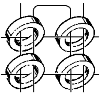Donner 3500
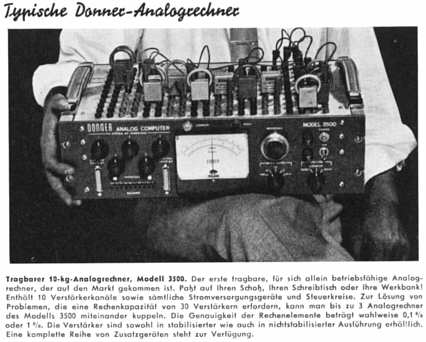
| Manufacturer: | Donner |
| Type: | 3500 |
| Year: | vor 1960 |
| Technology: | Vacuum tubes (35 total) |
Description on the advertisment:
"Portable 10-kg-analog computer, Model 3500. The first portable
independant analog computer available on the open market. Fits in your
lap, on your desk or your workbench! Contains 10 amplifier-channels as
well as all power supply and control circuits. For solving problems
that require a capacity of 30 amplifiers up to three Model 3500 analog
computers can be combined. The accuracy of each part is either 0.1% or
1%. The amplifiers are available as stabilized as well as in
nonstabilized versions. A complete range of peripherial devices is available."
According to the ad above this might be the world's first lap-top. The analog computer is build exclusively with valves and contains 10 direct-current-amplifiers. Five of these can be used as integrators by plugging in a capacitor. The other amplifiers can only work as summators. The difference between integrators and the other amplifiers is, that the capacitors in the integrators can be charged to a certain starting voltage by setting the rotary switch to 'reset'.
The computer does not contain a multiplier or built-in summation resistors. Rating of the summation-inputs is done by plugging resistors in the programming-array.
As usual for analogue valve computers, the internal voltage is +/- 100V.
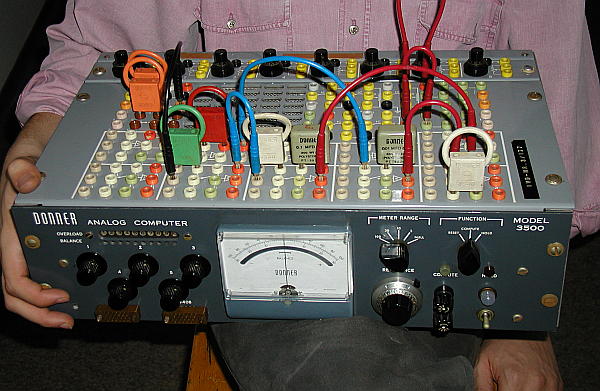
Re-staged photo from the advertisment
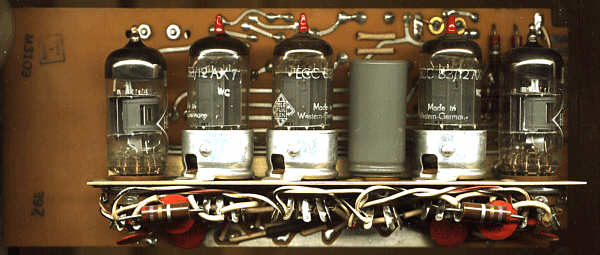
One of the amplifier modules
The tubes from left to right:
6BR8A, 12AX7 (=ECC 83), 12AX7, 12AX7, 6BR8A. The gray "tube" on the fourth
position is a syncro-vibrator. This is a relay that is operated with the
heater AC and thus switches 50 times per second. Therefore, the amplifiers
are chopper stabilized.
There in an integrator and a normal amplifier on each of these modules.
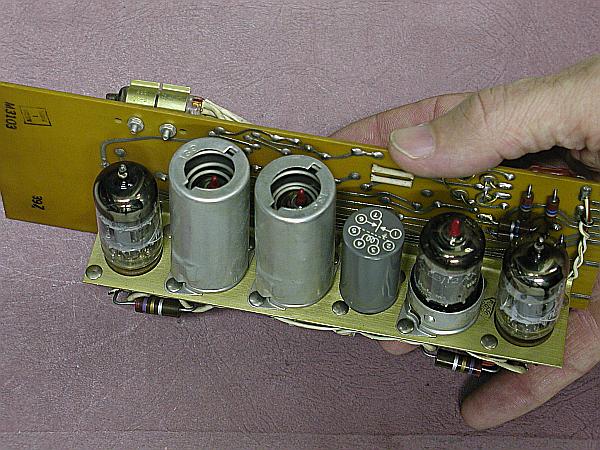
Perspective view
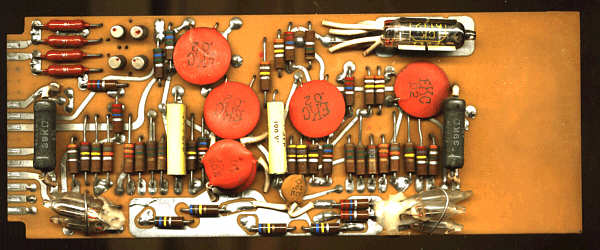
The back of the module
There is a hidden subminiature tube, a CK6112 (an indirectly heated dual triode). The four round metal cans at the top left are HK2 diodes. At the bottom left and right are neon lamps that are used to couple the individual tube stages.
